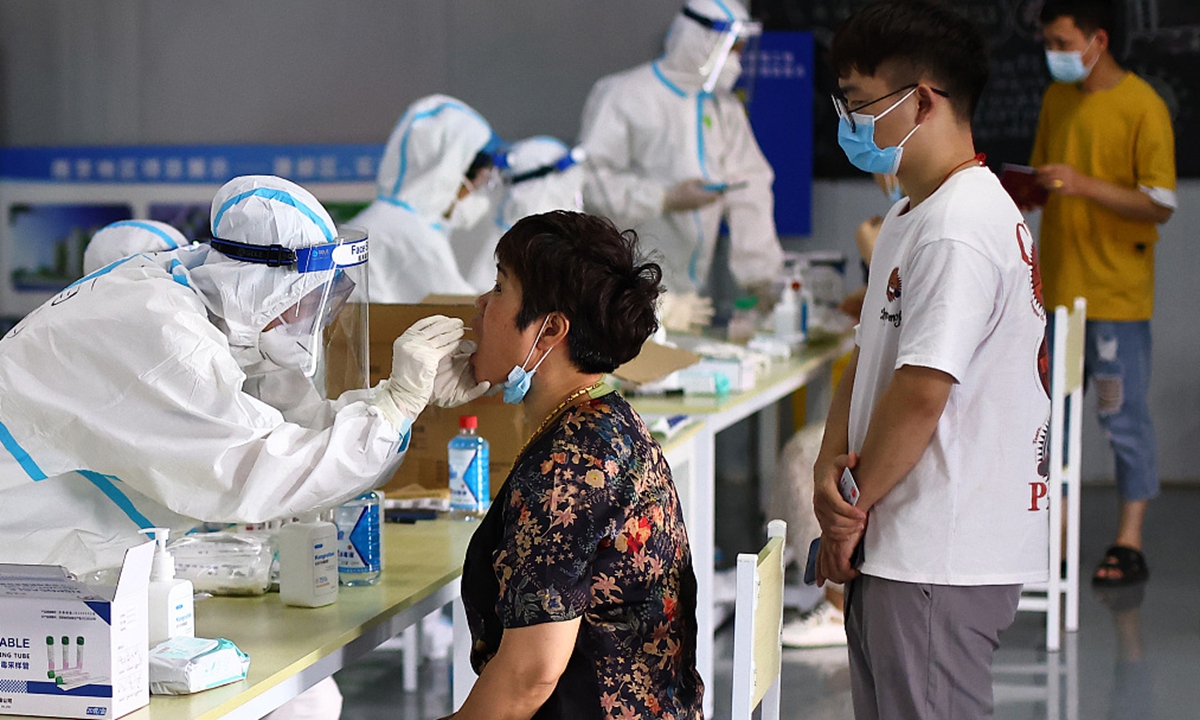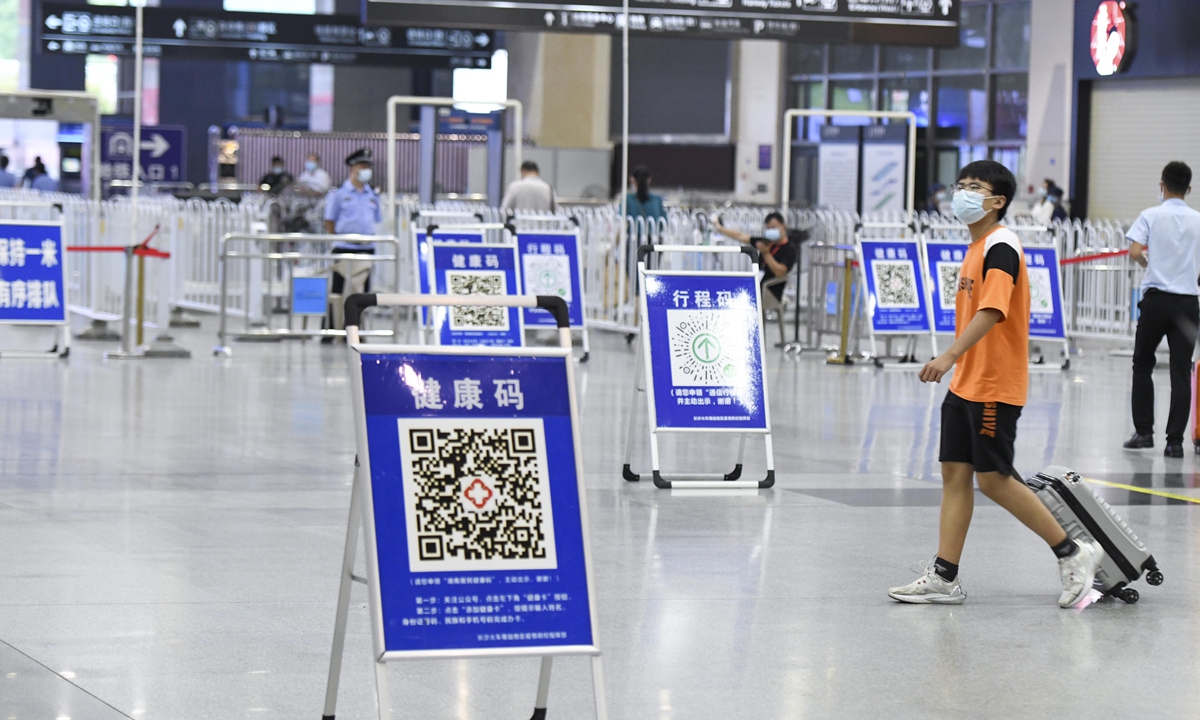New outbreak in Nanjing may spread to more regions: National Health Commission official

Photo:VCG
The new wave of the Delta variant strain outbreak in Nanjing, East China's Jiangsu Province, may continue to spread to more regions in the short term, He Qinghua, a senior official with the National Health Commission, said at a press conference on Saturday.
The recent outbreak is caused by the Delta variant strain, which is highly contagious and spreads fast, He said. Meanwhile, this round of the outbreak has occurred during summer when tourists gather at scenic spots, and it was first detected at Nanjing Lukou International Airport where there is a large passenger flow.
"Due to the above three characteristics, the Nanjing outbreak has spread to other regions within and outside Jiangsu Province. There is a risk that it will continue to spread to more regions," He said.
Since the first confirmed case of the latest outbreak was detected on July 20 at Nanjing Lukou International Airport, a total of 262 infections have been reported as of Friday.
China reported an accumulative total of 328 domestically transmitted cases in July alone, approximately reaching the combined total during the previous five months, data from the National Health Commission showed on Saturday.

The Changsha railway station in Central China's Hunan Province set up signs for passengers to scan their QR health codes on Friday, as Hunan clamped down after the Nanjing airport outbreak spread to at least 13 cities. Photo: cnsphoto
Zhangjiajie in Central China's Hunan Province has become another key point of the resurgence of the COVID-19 pandemic.
He said that working teams have been sent to Jiangsu and Hunan provinces to handle the outbreak, with relevant work being conducted in an orderly fashion. "By now, our epidemic prevention measures are still effective," He said, noting that the Delta variant strain is still a coronavirus whose transmission source and channel is clear, and that the country successfully contained more than 30 outbreaks in areas including South China's Guangdong Province and Northeast China's Liaoning Province.
Feng Zijian, a deputy director-general of the China CDC and secretary-general of the Chinese Preventive Medicine Association, said at the same conference that the country has launched a series of pandemic control measures like large-scale tracking of people flowing out of Nanjing and Zhangjiajie, in addition to powerful comprehensive control measures in the two cities.
Feng said that people from medium- and high-risk regions should cancel intra-provincial trips, while those who plan to travel to these areas should delay their trips.
As Saturday afternoon, China has three high-risk areas and 70 medium-risk areas across the seven provinces.
By 6pm Friday, 29 provinces and municipalities have issued notifications asking residents to reduce unnecessary intra-provincial trips, while some cities in provinces such as East China's Zhejiang and Fujian provinces ask teachers and students to cancel exchanges and training activities outside of the provinces during the summer holidays.
Global Times


